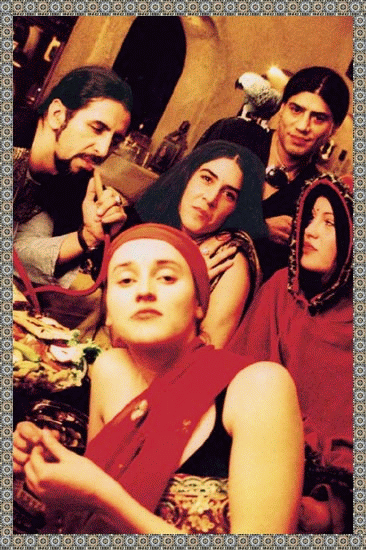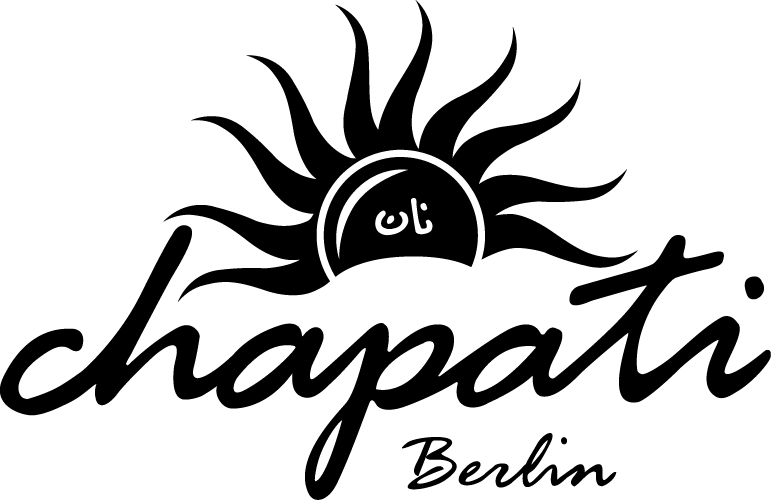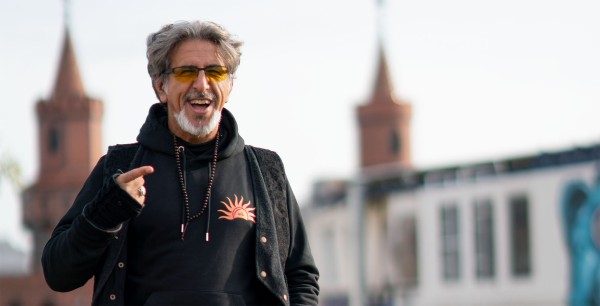(For those who want to know more, here ;is a personal review by Hamid from 2002, and a photo review of the chapati collections of the last 25 years can be found ;here.)
You can also join the event on Facebook.
You can't be there in person? No problem, we will stream the event.
The event starts on 03.09.2022 at 9 pm.
When Hamid Mohammadi came to Germany in 1986 at the age of 19, he never thought he would one day found his own fashion label. The success of this label will be celebrated in 2022 with its 25th anniversary. In the meantime, he secures 45 jobs in Germany and 159 in India. But first, as a political refugee, he had to catch up on his A-levels, as his school-leaving certificate from Iran was not recognized in Germany. He then studied plastics technology and textile engineering, which also made his family in Iran very proud. Even the distance could not dim the deep bond with his mother. Her favorite wisdom, which she gave him along the way, was: “What comes from the heart, sits in the heart.”
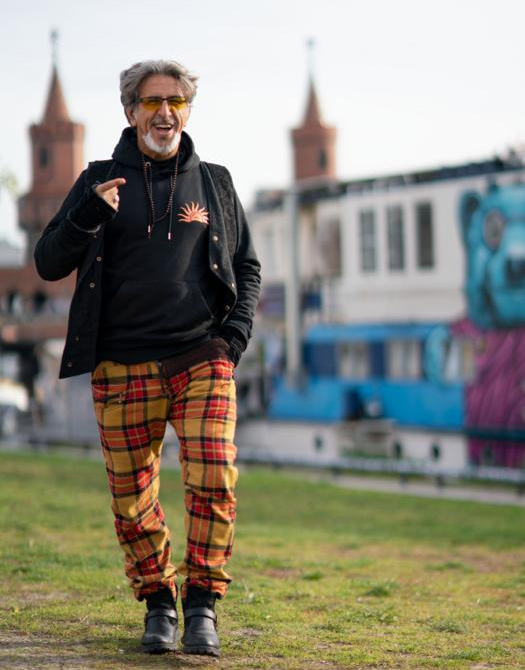
With the initiative "Defend Afghan Women`s Rights" the initiators want to achieve two things: collect donations for Afghan women`s rights organizations and make political demands for a human rights based foreign policy. Especially for this campaign we have produced a GOTS certified hoodie made of organic cotton, which we offer at the Bazaar Berlin for 69,- €. The profit of the project will go in full to the aid organization. We will publish the proof of donation on our blog afterwards.
Shortly after the first meeting Hamid opened the first Chapati store in Berlin's Erich-Weinert-Straße. Besides clothes, there was also jewelry, furniture and cloths from India. The name Chapati is derived from the Indian bread. Chapati stands for the bread earning and self-empowerment of people like Hamid, who took their fate into their own hands and created something new within the scope of their possibilities. Something from which again a space can arise for other people to develop and secure their future. For example, the head of the editing department in the Indian production facilityIndia, who has retired happily and deservedly after a proud 41 years, or the steadily growing team in Berlin.)
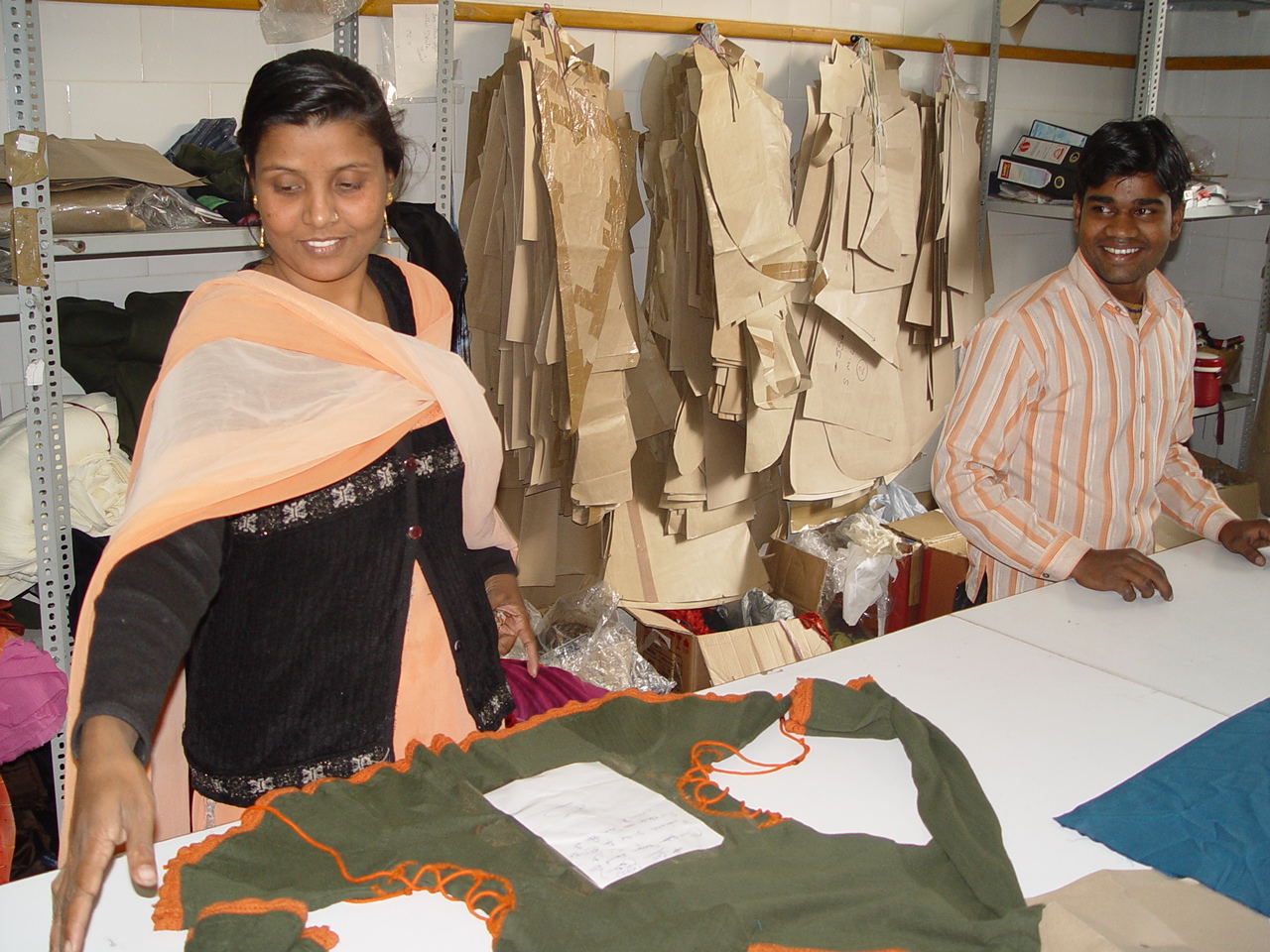
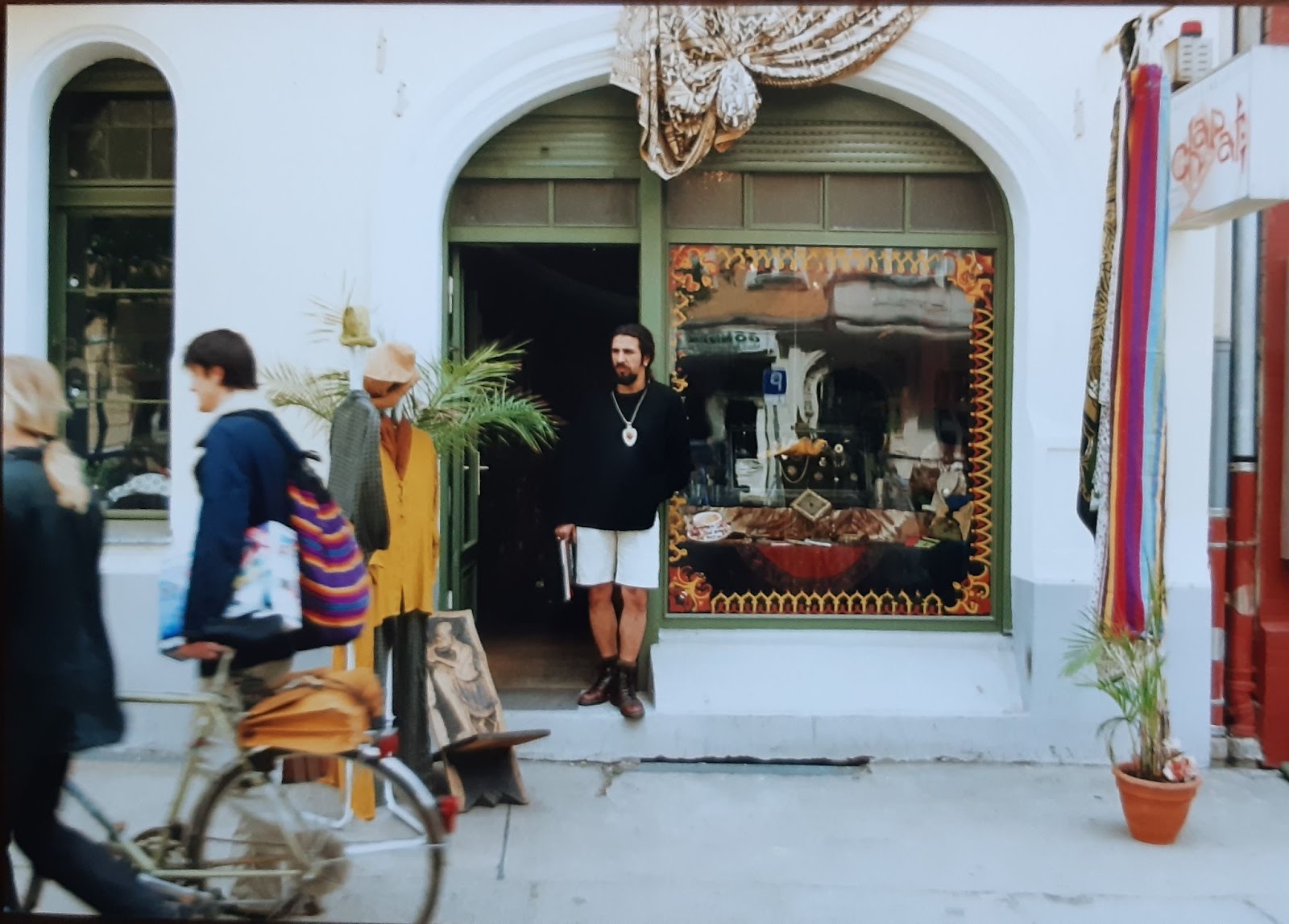
Very soon a synergy developed between the Berlin alternative scene and Chapati. For example, Chapati was present at festivals like Antaris, or at the Carnival of Cultures. Since the beginning, Chapati has been about self-empowerment through creative breadwinning in a society where everyone wants to be authentic and true individuality and authenticity has become a rarity. From the beginning, our customers loved the philosophy, colorfulness, the sleeves with incorporated cuffs, the king collar or arwenkapuzen. But customers especially appreciate the quality and high quality fabrics until today. Velvet fabrics and pointed hoods developed over time into a true trademark of Chapati, also because sustainable velvet is still very rare on the market.
Our customers enjoy the extraordinary atmosphere in the stores, where they were always served a glass of Persian tea from the samovar until the outbreak of the pandemic.
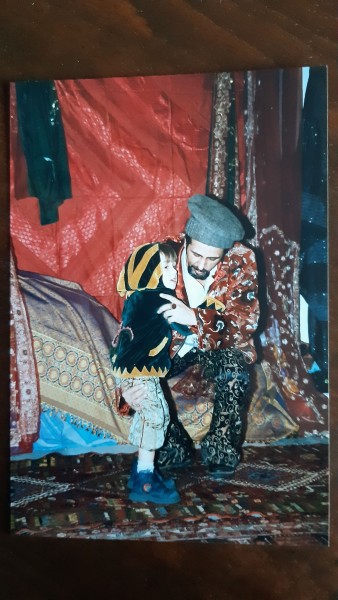
First attempts of men and children collection about 23 years ago Hamid and son, Younes
In 2000, the second branch opened - the flagship store in Zossener Straße, which still exists today. Now Hamid also began to employ sales staff. The first Chapati team was formed and despite the growth of its members, it is still a wonderful, family-like community.
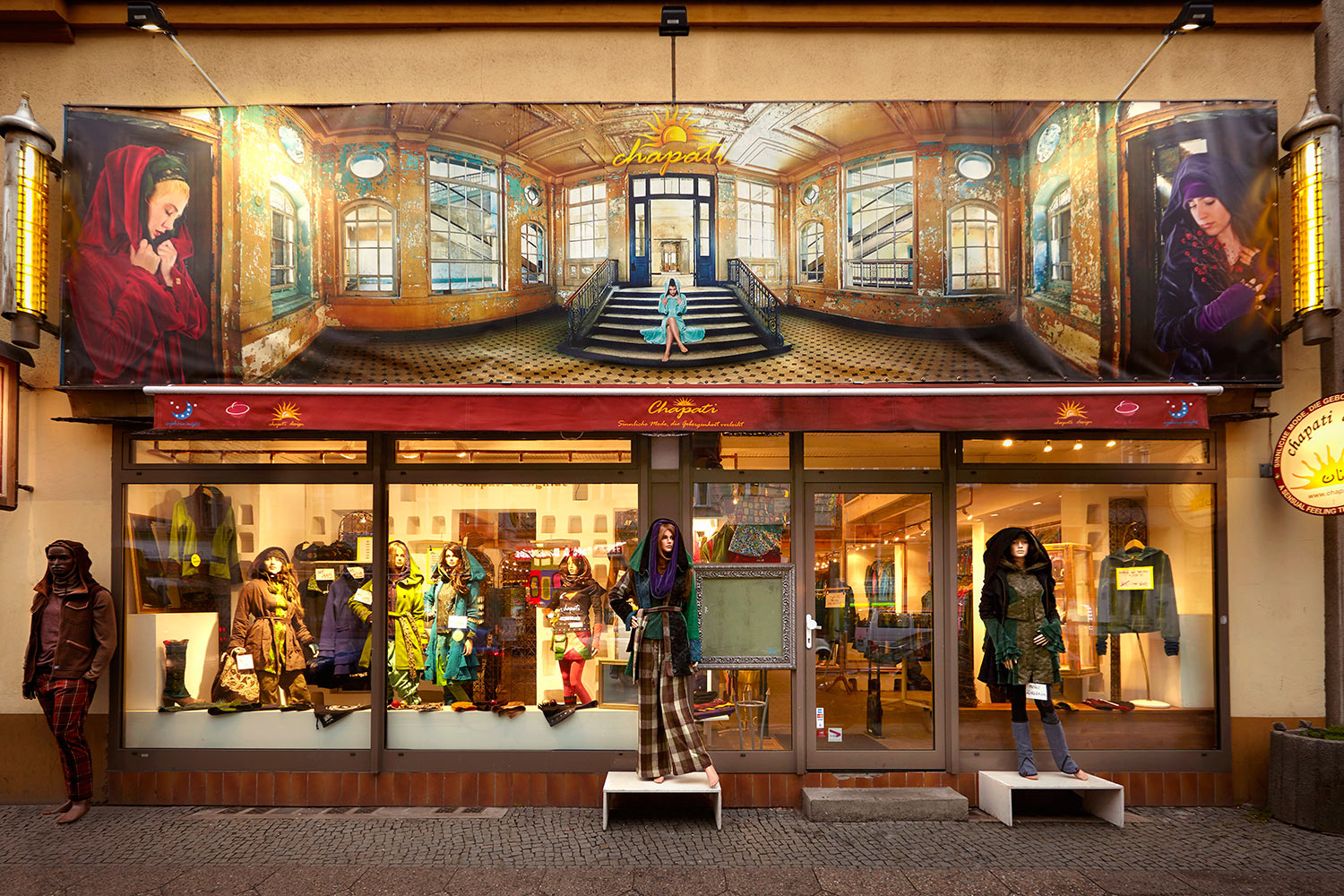
If you ask Hamid about his intention in founding Chapati, you get many different answers that form a mosaic. One part of it was the experiences he made as a young asylum seeker from Iran in Germany with everyday racism. Another part was the lived experience of life, which he could only share with a few people here. This did not correspond to the German majority society, which was shaped by norms. Norms like people had to look like, how they had to behave where, what they had to wear where. These norms had to be broken! There is also a detailed interview about this in the Tagesspiegel with the title Berlin has healed me.
What better way to break these gray norms than with bright colors and individual designs? Those that stand out from the gray mainstream masses. The idea was that people underline their inner values through fashion, an outer shell. From this developed the slogan Be different. Be yourself.
And last but not least, the approach was to make sustainable fashion from high-quality fabrics affordable for the average consumer. Chapati was one of the first fashion companies to offer organic cotton in the early 2000s. Keep in mind that at that time, fast fashion was catching on with the masses and was more in vogue than ever before. It was Hamid's stated goal to become a pioneer in sustainable fabrics, and to encourage other brands to follow suit early on, although the big hype for sustainable fashion would not come to Germany until years later with the Fridays For Futures movement.
Gradually, a retailer network for Chapati developed, going beyond the borders of Germany to France, Holland, Italy and Portugal. More stores opened and the first webshop went online. If the label started with women's clothing, there is now also a steadily growing share of men's fashion. The Chapati community can look forward to many new authentic collections in the future. Chapati will always remain true to itself, evolving with ever new, fancy ideas and ways to face the world of today through fashion.
Your Chapati Team
